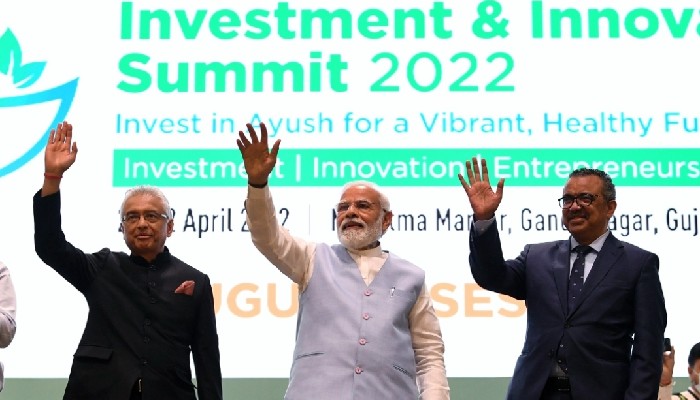The fourth general assembly of the ISA was held under India's presidency
The International Solar Alliance (ISA) has promised to achieve $1 trillion in global solar investments by 2030.
The decision was taken at the fourth general assembly of the ISA held virtually from October 18-21.
According to an official press release issued by India's Ministry of New and Renewable Energy on Friday, the ISA announced a partnership with Bloomberg Philanthropies to mobilize $1 trillion in global investments for solar energy across ISA’s member countries.
The two organizations will work with the World Resources Institute (WRI) to develop a Solar Investment Action Agenda and a Solar Investment Roadmap, which will be launched at COP26, it added.
The meet was presided over by India's Union Minister for Power, New and Renewable Energy RK Singh. He is also the President of the ISA Assembly.
US Special Presidential Envoy for Climate John Kerry delivered the keynote address.
"Solar energy is the most powerful tool that the world has in its toolkit to combat climate crisis.Building a solar powered economy won’t just slash carbon emissions, it’ll open enormous economic opportunities," he said.
According to Kerry, the ISA is unique in its focus on spreading solar to emerging economies including small island states.
"So, I commend the tremendous work that every country here is doing as part of the International Solar Alliance. Solar energy is critical to our collective climate goals." he said.
The European Commission Executive Vice President for the European Green Deal Frans Timmermans addressed the gathering on Wednesday.
"Developing renewable energy will be the engine for our global recovery from the COVID crisis and to keep energy prices in check. It is fast becoming the most cost-effective option to generate electricity and address the needs of a rapidly growing population," he said.
Delivering the presidential address, RK Singh said, "Solving the problem of energy access is more important than the energy transition. The energy transition is meaningless for those without energy. The ISA can enable energy access for 800 million people worldwide".
During the assembly, two new programmes were launched: Management of Solar PV panels & battery usage waste & Solar Hydrogen programme.
The new Hydrogen initiative is aimed at enabling the use of solar electricity to produce hydrogen at a more affordable rate than what is available currently (USD 5 per KG), by bringing it down to USD 2 per KG.
An update on One Sun One World One Grid (OSOWOG) initiative was also discussed at the Assembly.
The concept of a single global grid for solar was first outlined at the First Assembly of the ISA in late 2018. It envisions building and scaling inter-regional energy grids to share solar energy across the globe, leveraging the differences of time zones, seasons, resources, and prices between countries and regions.
OSOWOG will also help decarbonise energy production, which is today the largest source of global greenhouse gas emissions.
A total of 108 countries participated in the Assembly, including 74 Member Countries and 34 Observer & Prospective Countries. In addition to these, 23 Partner Organizations and 33 Special Invitee Organisations also participated.
 Contact Us
Contact Us  Subscribe Us
Subscribe Us









 Contact Us
Contact Us
 Subscribe
Subscribe
 News Letter
News Letter

